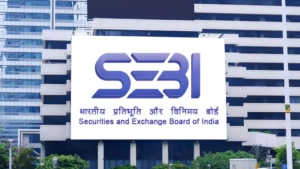The Securities and Exchange Board of India (SEBI) is stepping up its game in tackling unauthorized financial advice circulating on social media. With the rapid rise of influencers and online forums offering unverified investment tips, SEBI is now seeking greater access to social media records to combat misleading financial guidance. This move highlights the regulator’s growing concern over the impact of unregulated financial content on unsuspecting investors

The Rise of Unregulated Advice: A Growing Concern
In today’s digital age, information is more accessible than ever. While this has its advantages, it also comes with risks—particularly in the realm of financial advice. Social media has become a hotspot for self-proclaimed “gurus” who, without any regulatory oversight, dispense stock tips and investment strategies. From closed WhatsApp groups to viral tweets and Instagram reels, the financial landscape is increasingly being shaped by unverified sources.
For retail investors, distinguishing between credible advice and baseless speculation can be challenging. Many influencers use persuasive tactics and promise quick gains, luring individuals into risky or even fraudulent schemes. The anonymity of online platforms further complicates the issue, making it difficult to track down those responsible for spreading misleading financial information.
SEBI’s Response: A Call for Greater Oversight
Recognizing the urgency of the situation, SEBI has moved to tighten its grip on unregulated financial advice. By requesting expanded access to social media records, the regulator aims to identify and take action against unauthorized individuals offering financial guidance. This step is part of a broader effort to safeguard investors and maintain market integrity.
However, SEBI faces a delicate balancing act. While stricter oversight is necessary, it must be implemented without infringing on free speech or hindering legitimate financial discussions. The goal is to crack down on misleading and fraudulent advice while allowing healthy financial discourse to continue.
The Challenges of Regulating Social Media
Policing financial content on social media is no easy task. The sheer volume of posts, videos, and private group discussions makes it difficult to monitor and enforce regulations effectively. Additionally, the global nature of the internet presents jurisdictional challenges—many individuals offering unauthorized financial advice may be operating from outside India’s borders.
Another key challenge is defining what constitutes “financial advice.” Casual conversations about market trends or personal investment experiences shouldn’t be equated with professional financial recommendations. SEBI will need to establish clear guidelines to avoid over regulation while ensuring that harmful advice is curtailed.
The Role of Investor Education
While stricter regulations can help, education remains a powerful tool in protecting investors. Many individuals fall prey to misleading financial advice simply because they lack the knowledge to recognize red flags. SEBI has long been involved in investor awareness initiatives, but more needs to be done to empower people with the skills to make informed financial decisions.
Investors should be encouraged to rely on credible sources, seek advice from certified professionals, and be cautious of schemes promising unrealistic returns. Raising awareness about the risks associated with unverified financial tips can go a long way in preventing financial losses.
The Way Forward: A Multi-Pronged Approach
Tackling unauthorized financial advice requires a collaborative effort involving regulators, social media platforms, and investors. Here’s what needs to happen:
- Collaboration with Social Media Platforms: SEBI should work closely with social media companies to identify and remove unauthorized financial content. Stricter moderation policies, user reporting tools, and transparency regarding misleading influencers can help curb the spread of bad advice.
- Stronger Enforcement Mechanisms: SEBI needs the authority and resources to take decisive action against individuals and entities offering unauthorized financial advice. This includes imposing penalties, issuing cease orders, and pursuing legal action in cases of fraud.
- Enhanced Financial Literacy Initiatives: Increasing public awareness about financial risks and responsible investing is crucial. SEBI, along with educational institutions and financial experts, should expand financial literacy programs to help investors make informed choices.
Conclusion: Safeguarding Investors in the Digital Age
SEBI’s push for greater oversight of financial content on social media is a necessary step in today’s rapidly evolving digital landscape. While the internet offers valuable investment insights, it also presents significant risks when misinformation spreads unchecked.
By strengthening regulations, enhancing investor education, and working with social media platforms, SEBI can help create a safer and more transparent financial environment. The battle against unauthorized financial advice is ongoing, but with the right measures in place, investors can be better protected from misleading and potentially harmful information.
